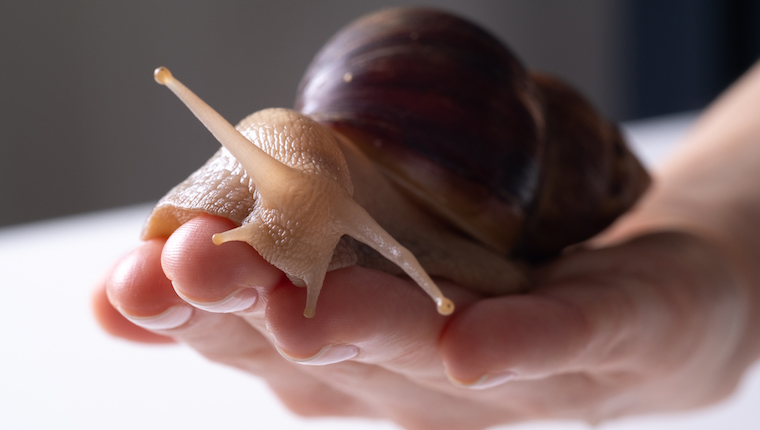When you think of dangerous animals, you probably don’t envision a snail, or any mollusk, for that matter. But Florida authorities say the giant African land snail poses a serious threat to plants and people alike. To combat it, they’re calling in the dogs.
Why the giant African land snail is dangerous
The Florida Department of Agriculture & Consumer Services (FDACS) deemed the giant African land snail “one of the most invasive pests on the planet” and “one of the most damaging” mollusk subtypes in the world. Its destructiveness comes from its considerable size and appetite and its ability to procreate rapidly. One snail can lay up to 2,000 eggs annually and live around five years. It consumes at least 500 different plants, as well as paint and stucco, according to CBS News. According to FDACS, the species could devastate the states’ ecosystem and agriculture. The snails also carry a parasite rat lungworm, which is known to cause meningitis in humans.
This is the species’ third time invading the state. Authorities eradicated them twice before in 1975 and 2021. Unlike most snails, it has white flesh, making it especially popular in the pet trade.
The snail is native to eastern Africa. Authorities believe someone brought one home as a pet, leading to the most recent outbreak.
Dogs have found over 1,000 snails so far
Mellon, a yellow rescue Labrador, is one of four specially trained dogs in the Detector Dog Inspection Program who is helping to sniff out the snails. Mellon and his fellow inspectors are hard at work in New Port Richey, the site of the current outbreak, and 80 parcel shipping facilities statewide. When they find a snail, they sit on top of it, as they’re trained to do. So far, Mellon and another dog have found more than 1,000 snails in the New Port Richey area.
FDACS has placed New Port Richey under quarantine, preventing any plants or other vegetation from leaving the area. Throughout the region, authorities have also applied metaldehyde, a pesticide harmless to humans and animals.









